10 times gold was found in everyday places
The people who struck gold in unexpected places
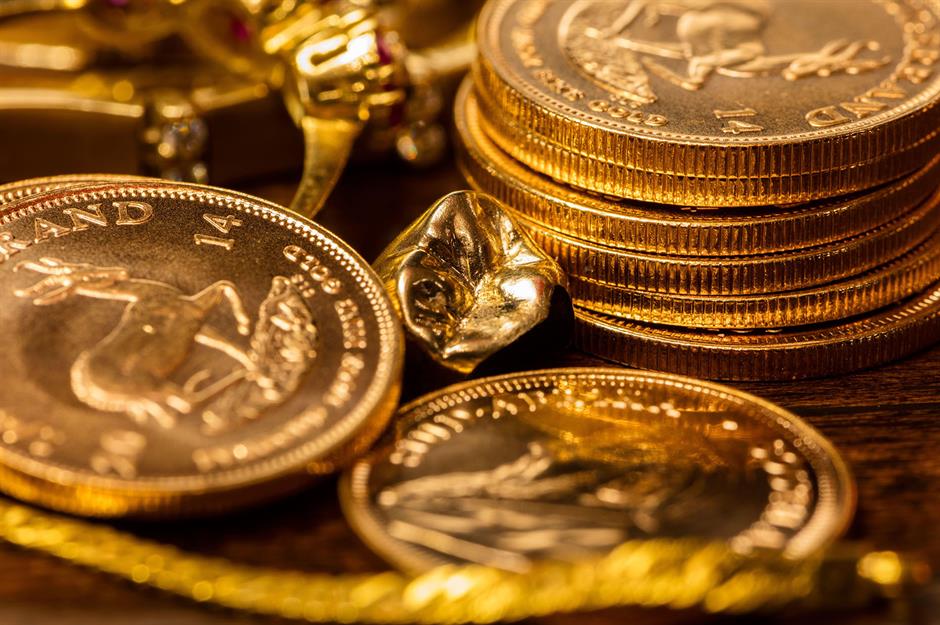
Gold hunting often conjures images of adventurers sifting through gold pans or seeking huge gold nuggets in far-flung locations. But sometimes gold can be right under your nose – or, for one couple, right in their back garden. Read on for some of the most unexpected and exciting gold discoveries of recent times.
All dollar values in US dollars and currency conversions correct for the time of valuation.
Gold coins found in a pub, Ireland: value unknown
A trip to the pub usually ends with less change in your pocket. But it was a different story for five Irish builders carrying out groundwork at Cooney's Bar in Carrick-on-Suir in Tipperary, Ireland in 2013. The team of builders found 81 gold coins when working on the foundations.
One of the builders, Shane Comerford, initially dismissed the coins as worthless and threw a fistful to the ground when the find disturbed their work on the pub. But once they wiped away the clay covering the coins, the builders realised they had found something special.
Gold coins found in a pub, Ireland: value unknown
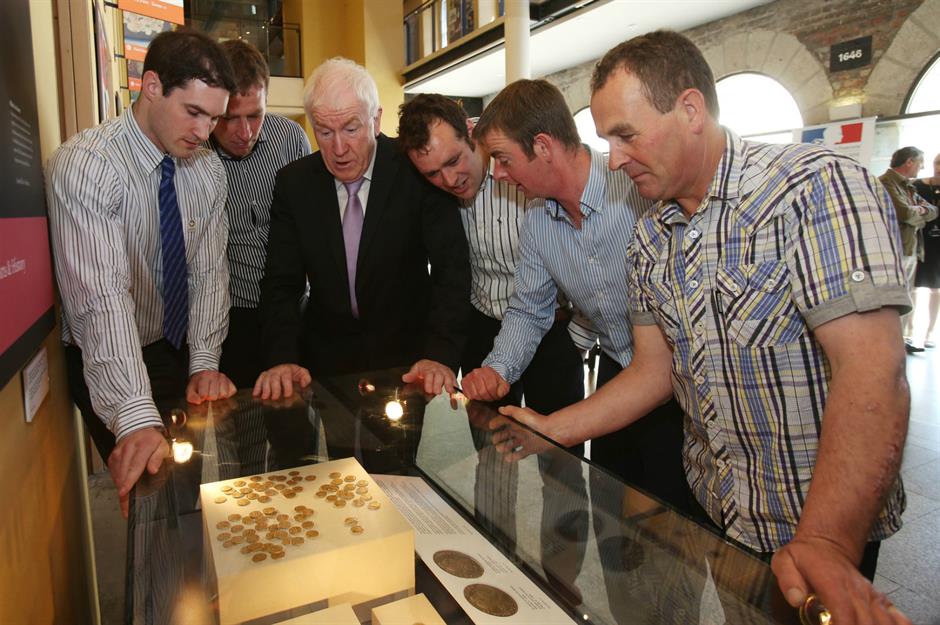
They had discovered a hoard of 17th-century gold guineas and half guineas under the pub's floorboards. The coins went on display at the National Museum of Ireland in Dublin. The finder's reward for locating the gold coins was not disclosed, but it was likely enough to buy the five unlikely treasure finders a few drinks.
Sponsored Content
South African gold coins, UK: up to $133,000 (£100k)
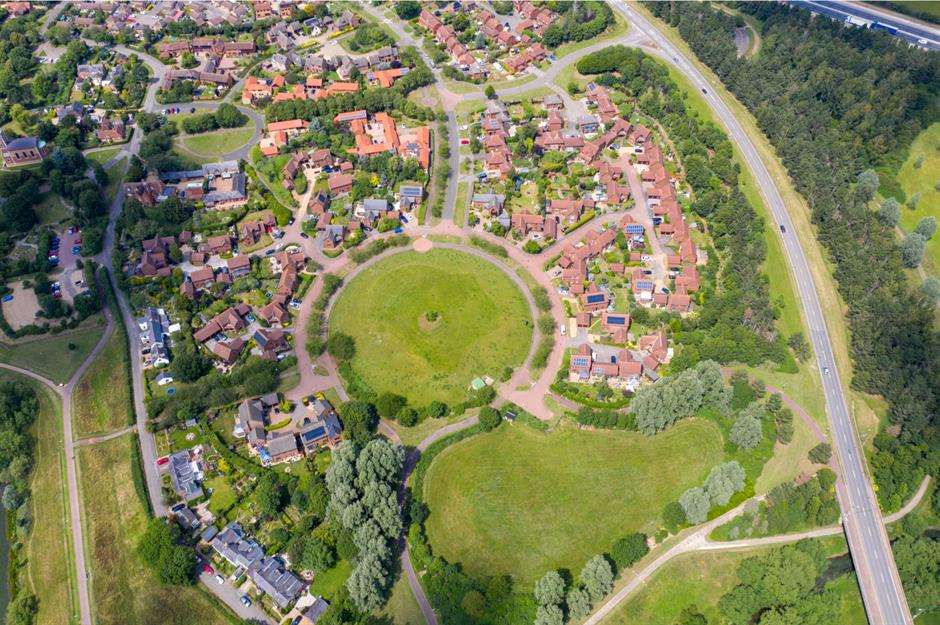
The English town of Milton Keynes isn't the first place you'd expect to find South African money. But during lockdown in 2020, one Milton Keynes resident struck gold when they discovered 50 gold coins from apartheid-era South Africa buried in their garden.
South African gold coins, UK: up to $133,000 (£100k)
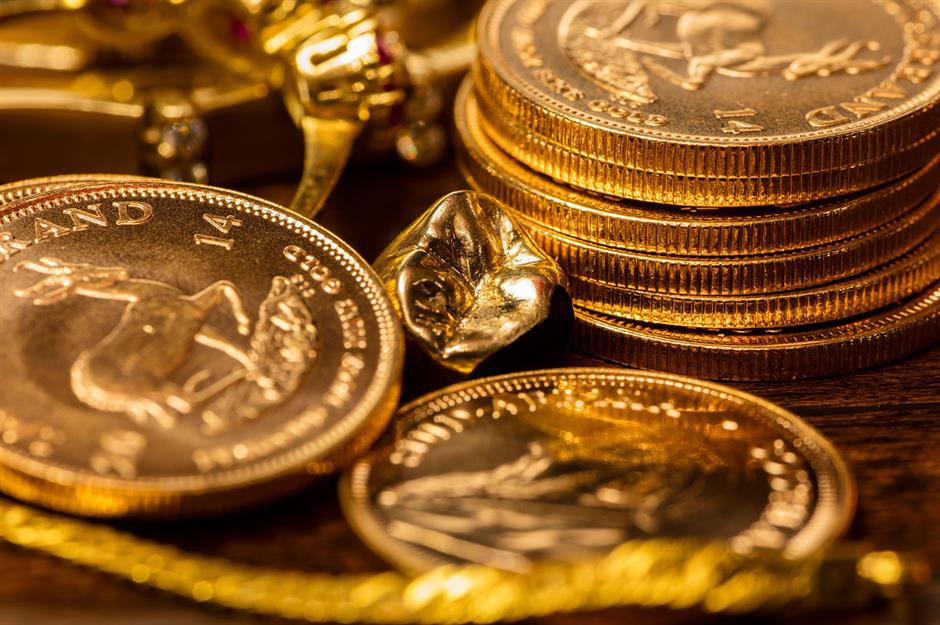
According to a report by The British Museum, the Krugerrand coins – the first in South Africa to contain one troy ounce of gold – were minted by the Rand Refinery in Germiston in the 1970s. Each coin was estimated to be worth £1,500 to £2,000 ($1.9k to $2.6k), giving the total hoard a value of up to £100,000 ($133k).
The origins of the gold remain a mystery to this day.
US gold coins in a London garden, UK: $154,000 (£98.2k)
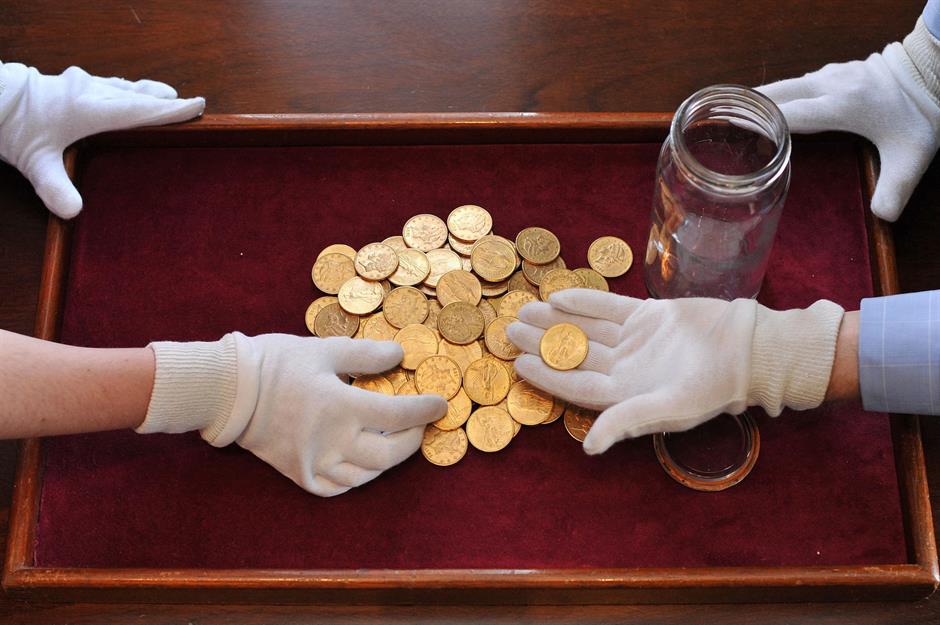
These 80 gold coins, known as US Dollar 'Double Eagles', were minted in San Francisco between 1854 and 1913. Hidden in a glass jar, they lay buried in a Hackney garden for almost 70 years. When residents made this extraordinary discovery in 2007 while digging a frog pond, they were understandably curious as to how the coins made their way to London...
Sponsored Content
US gold coins in a London garden, UK: $154,000 (£98.2k)
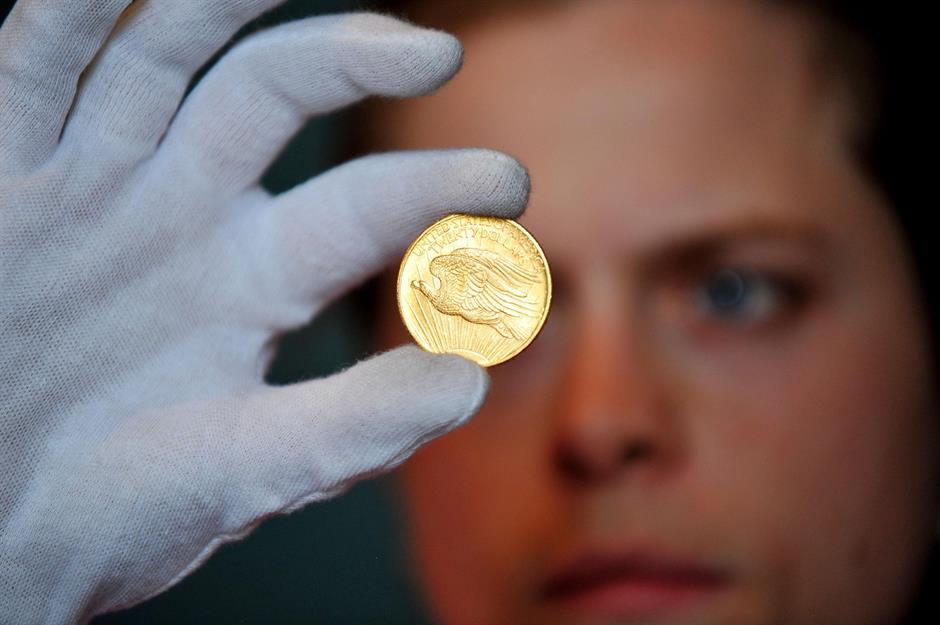
The incredible story goes like this: in 1940, a Jewish family fleeing the Nazis buried the coins in their London back garden, fearing a German invasion. Members of the family tragically died when the house was bombed in the Blitz, meaning the hiding place was lost for decades.
After its discovery in 2007, the hoard was donated to the Museum of London, which later found one of the owners' descendants, Max Sulzbacher. He permanently donated one of the coins to the Hackney Museum, while the rest of the hoard was sold at auction for a total of £98,280 ($154k).
Gold bars in an airport bin, South Korea: $319,000 (£240k)
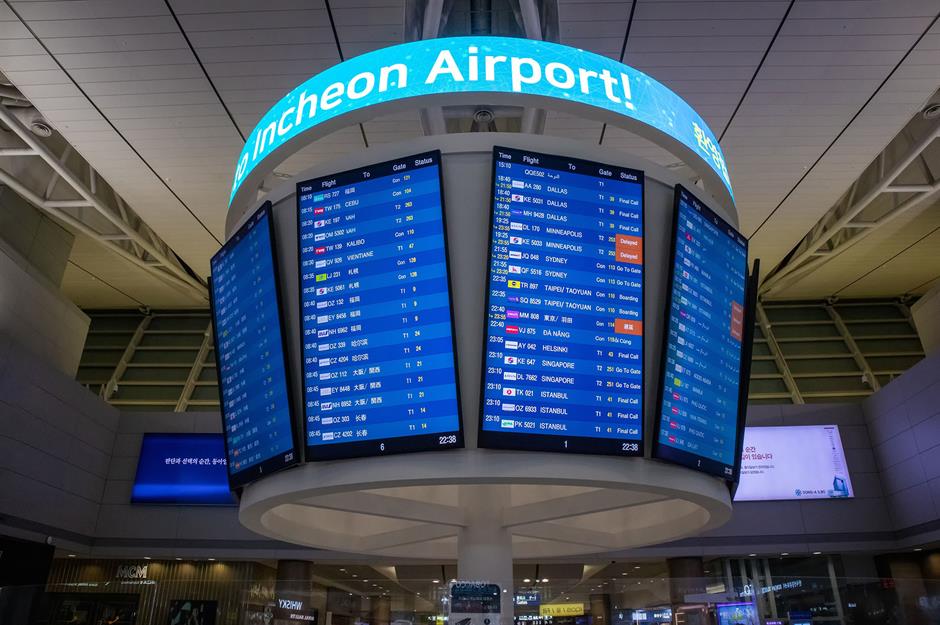
A cleaner at South Korea's Incheon International Airport made an unbelievable discovery during a shift in May 2018. When emptying a bin, the airport worker found seven gold bars worth around $319,000 (£240k).
Gold bars in an airport bin, South Korea: $319,000 (£240k)
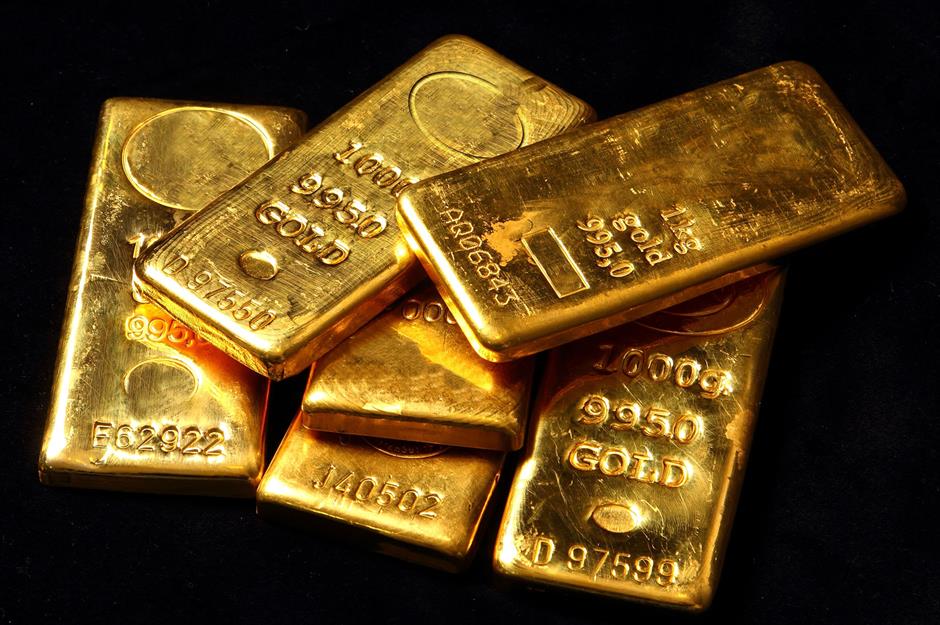
Despite South Korea's 'Finders Keepers' law, which allows the finder to keep the trove if the owner doesn't come forward in six months, the cleaner was not allowed to claim the gold because he was on duty at the time.
The unnamed airport worker missed out on the 5-20% of the gold's total price for which he would have been eligible, which would have been up to $64,000 (£48k).
Sponsored Content
Crushed chalice in a potato field, UK: $333,000 (£250k)
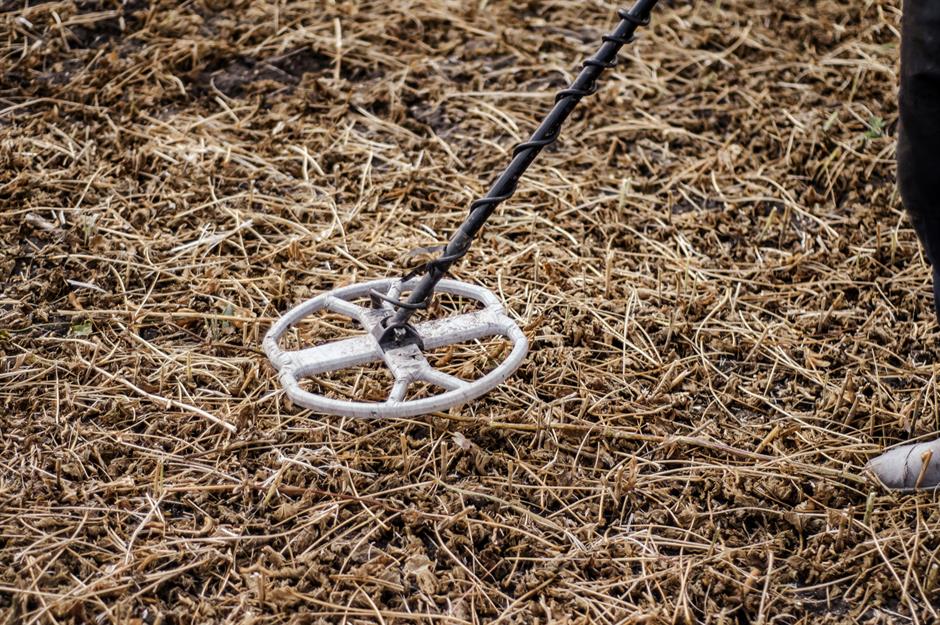
In November 2001, metal detectorist Cliff Bradshaw was in a potato field near Sandwich, England when his detector suddenly made a faint, high-pitched whine. The treasure hunter began to dig, and just 18 inches (45cm) below the surface he excavated an early Bronze Age artefact.
Crushed chalice in a potato field, UK: $333,000 (£250k)
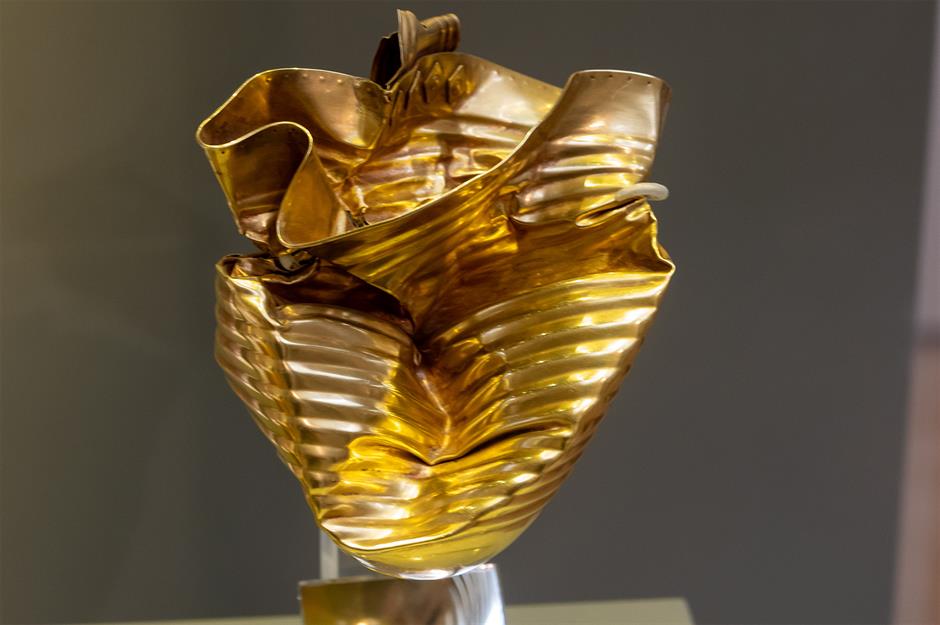
Bradshaw had stumbled upon a gold chalice dating from 1700-1500 BC, which had possibly been used by a priest-ruler for spiritual purposes. Now known as the Ringlemere Cup, it was snapped up by the British Museum for £250,000 ($333k), with the lucky finder and the landowner splitting the cash.
Gold hoard in a piano, UK: $665,000 (£500k)
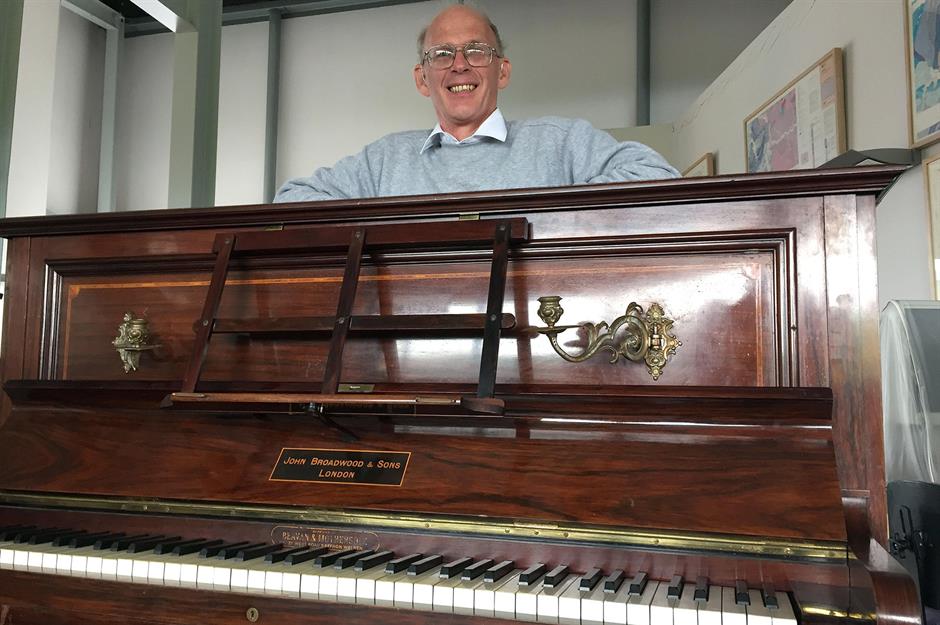
A 110-year-old piano was the unlikely hiding place for a hoard of more than 900 gold sovereign coins, the largest such haul ever found in the UK. The upright piano had been donated to Bishop's Castle Community College in 2016. While piano tuner Martin Backhouse was working on it, he found the coins stored in fabric pouches underneath the instrument's keys.
Sponsored Content
Gold hoard in a piano, UK: $665,000 (£500k)
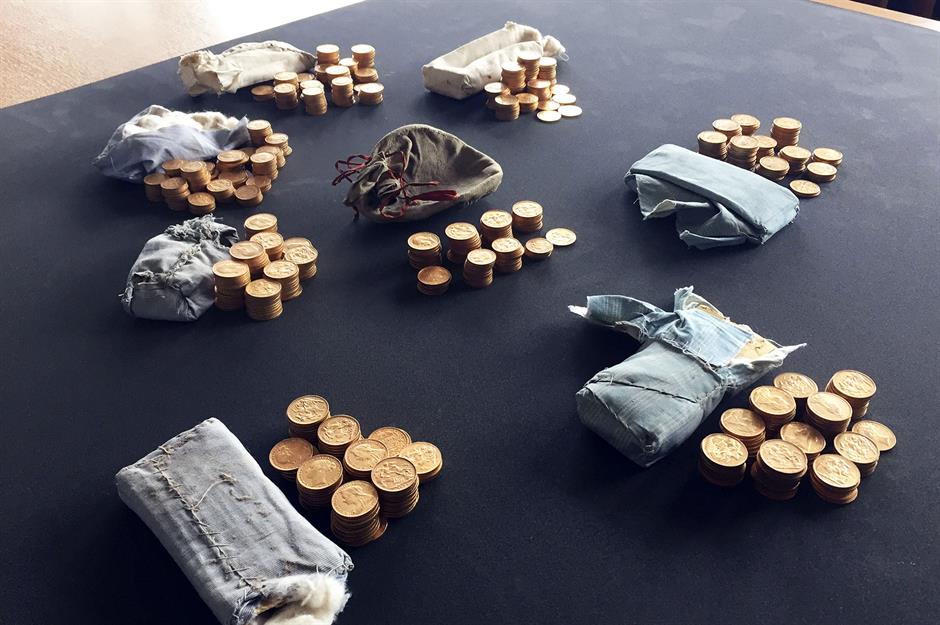
The origins of the hoard remain a mystery. It's still unknown who hid the coins, which date from 1847 to 1915, so carefully beneath the piano's keys, though they probably stashed them away to keep them safe during World War I. Before its donation, Graham and Meg Hemmings had owned the piano for 33 years while their children were learning to play and were completely unaware of the treasure that lay within.
The hoard, valued at £500,000 ($665k), was sold and both the college and the piano tuner who found them received a reward. The piano's previous owners didn't see a penny from the coins' sale but said they were "very happy" some of the money would go to the college.
Gold bars in a back garden, France: $887,000 (£666k)
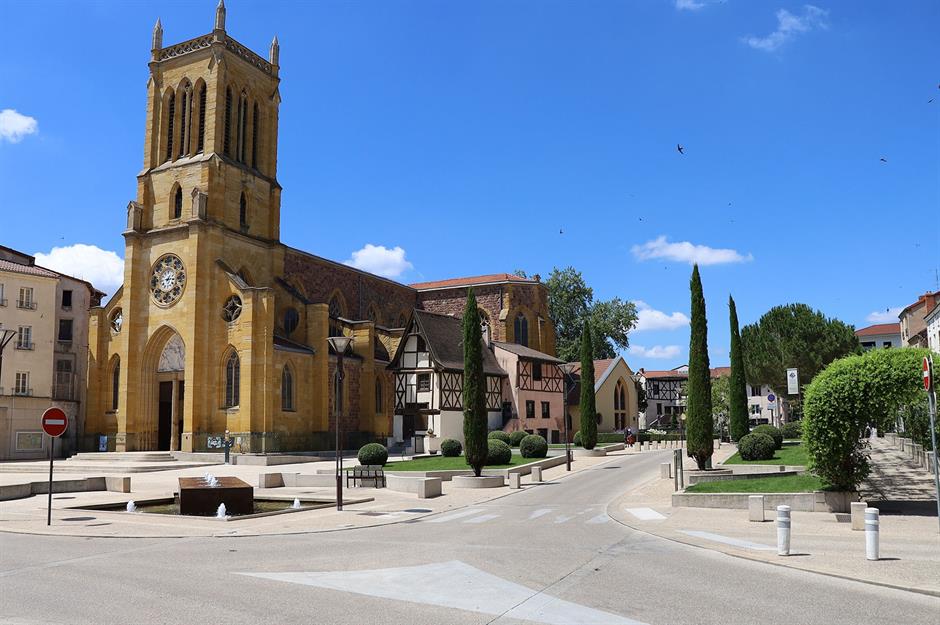
A couple in the French town of Roanne in the Loire region found themselves under police investigation after discovering 28 gold bars in their back garden. After moving into the property in 2002, the couple discovered six gold bars in 2009, followed by another 22 in 2013. The bars had an estimated value of €800,000 ($887k/£666k).
Gold bars in a back garden, France: $887,000 (£666k)
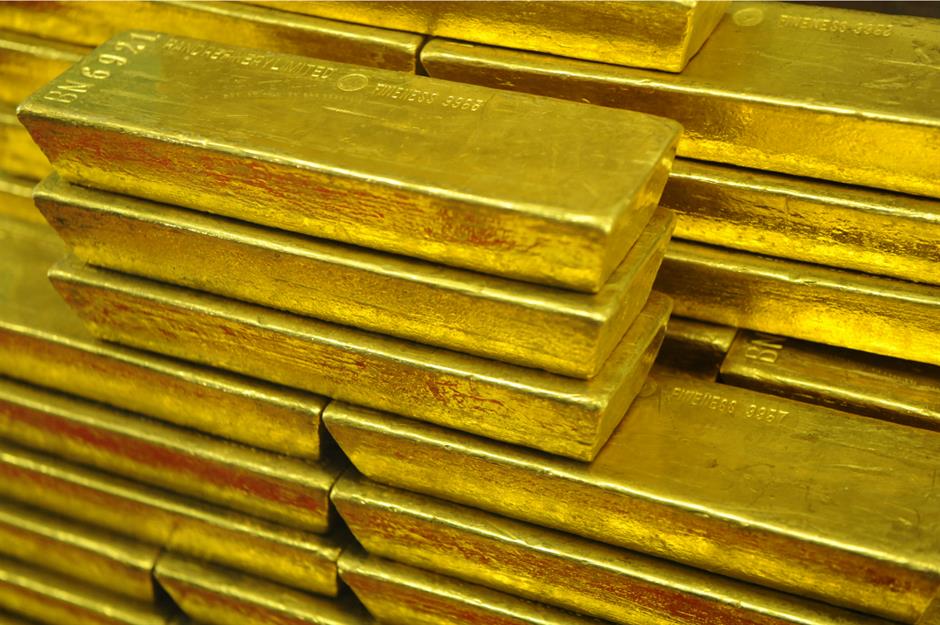
Despite legally declaring the finds, the couple sparked a criminal investigation when they sold 23 of the bars, creating transaction levels that alerted an anti-money laundering agency. The news then attracted other claimants.
The house's previous owner took the couple to court over the ownership of the bullion and won. The finders had to return the remaining gold, along with the money from the sale of 15 of them.
Sponsored Content
Gold coins hidden in the wall of a home, France: $3.5 million (£2.6m)
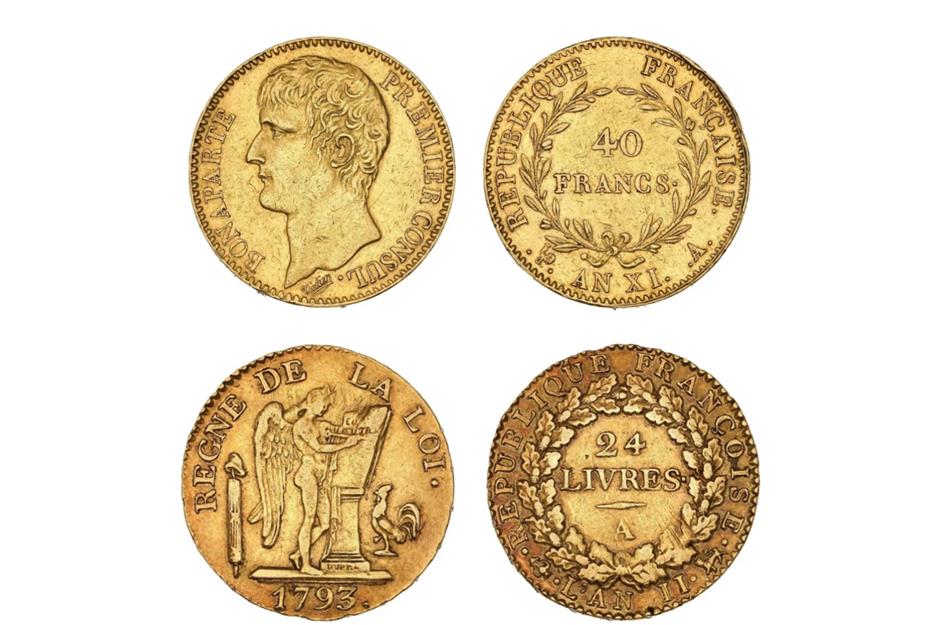
In June of this year, a truly staggering gold hoard sold for almost $3.5 million (£2.6m) at auction in France. The collection of more than 1,000 gold coins featured many rarities, including several from the ancient Kingdom of Macedonia dating back as far as 336-323 BC. Almost complete sets from the reigns of French Kings Louis XIV, Louis XV and Louis XVI were also included.
The coins were discovered hidden in the wall of a house in a small rural village in France. But how did they get there?
Gold coins hidden in the wall of a home, France: $3.5 million (£2.6m)
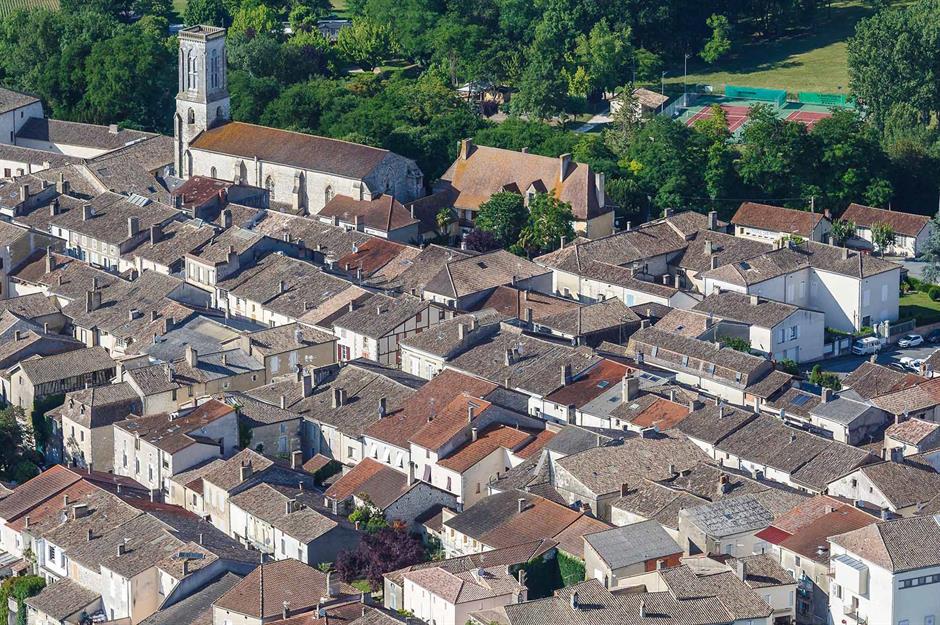
The valuable collection belonged to Paul Nacre, a resident of Castillonnès (pictured). According to coin expert Thierry Parsy, “Narce, who lived a modest life and didn’t see a lot of the world, spent all of his money on his collection.”
The reclusive Nacre died in a nursing home at the age of 89 last August. He had no direct heirs. The notary in charge of his estate was made aware of his hobby by villagers and set out to find the collection. An extensive search of Nacre’s house turned up nothing, and the notary was ready to call it a day before peering behind a picture on a wall in a storage room. There he found a chest containing the gold coins, which Nacre had meticulously catalogued over the course of his lifetime.
A home with hidden gold, France: $3.8 million (£2.9m)
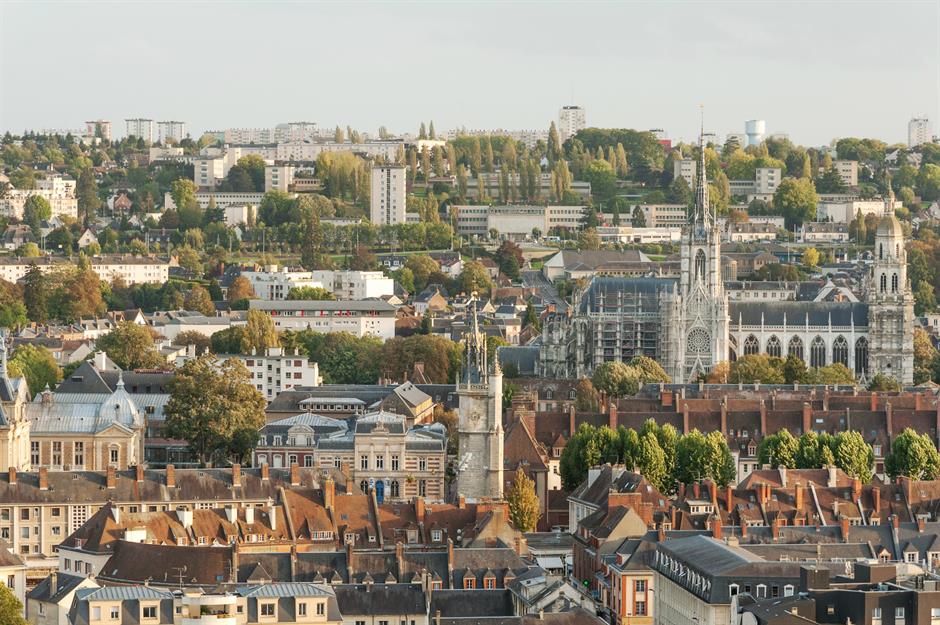
Staying in France, in late 2016, a man who inherited a house in the town of Evreux, Normandy was shocked to find that he had gained more than just the property. The house was filled with 220.5lb (100kg) of gold coins, ingots and bars secreted in different places.
Sponsored Content
A home with hidden gold, France: $3.8 million (£2.9m)
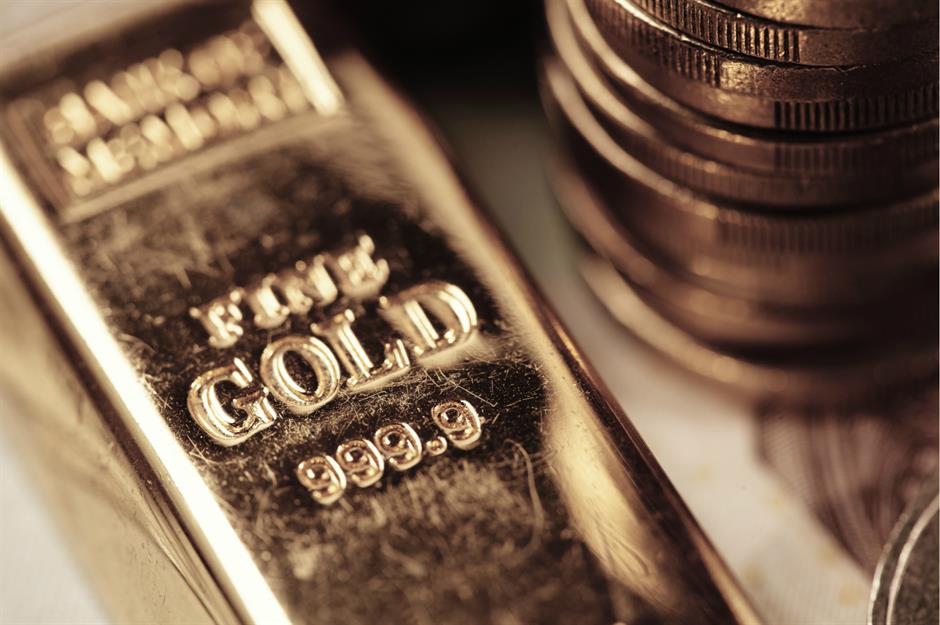
"It started when he found a tinplate box (with gold inside) screwed under a piece of furniture", according to La Dépêche, the local newspaper. The man's next find was inside a "whisky bottle box with a few gold pieces carefully hidden". The hoard gradually grew, and the lucky treasure finder sold it all for €3.5 million ($3.8m/£2.9m), though reports suggest he could have been hit with a hefty inheritance tax.
Gold Rush hoard buried under a tree, USA: $10 million (£7.5m)
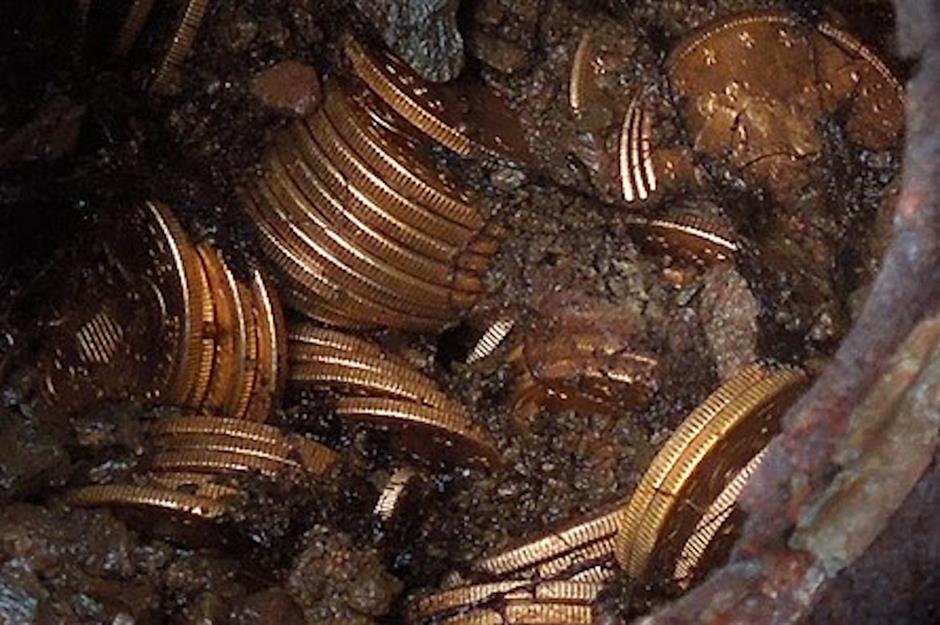
While walking their dog in 2013, a couple from northern California made a record-breaking discovery. Buried on their property were several rusted cans filled with a total of 1,427 gold coins – the largest gold coin hoard ever unearthed in the US. The coins were all minted between 1847 and 1894 and probably hidden away during the 19th-century Gold Rush.
Although the exact history of the coins remains a mystery, their value was estimated at $10 million (£7.5m).
Gold Rush hoard buried under a tree, USA: $10 million (£7.5m)
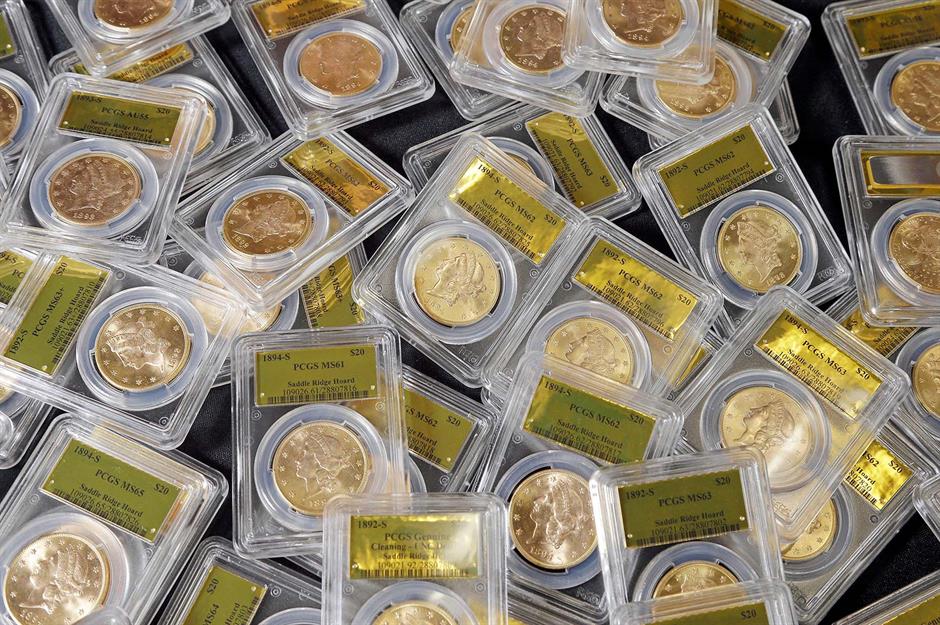
After the discovery, the finders of the so-called Saddle Ridge Hoard chose to remain anonymous, as US Treasure Trove Laws meant the collection could be claimed by descendants of the person who originally buried it. The finders then decided to sell the coins via Amazon.
Now discover the most valuable metal detector finds ever
Sponsored Content
Comments
Be the first to comment
Do you want to comment on this article? You need to be signed in for this feature